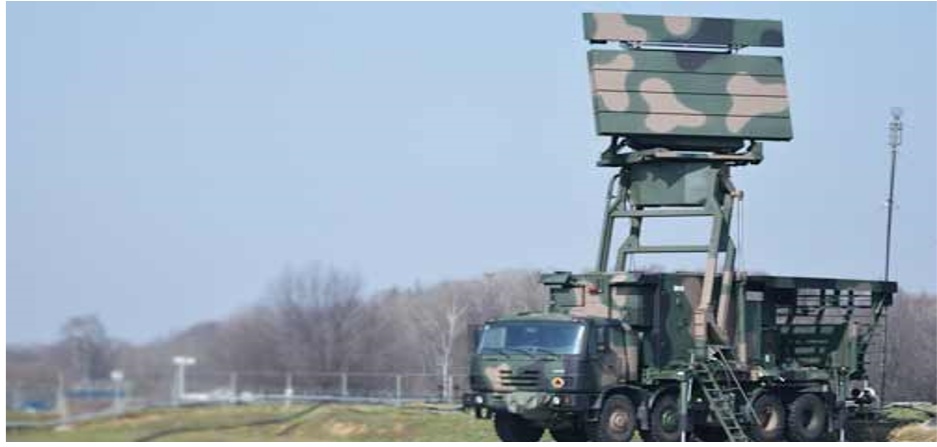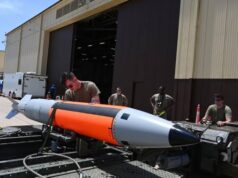Bangladesh To Have Indian Coastal Surveillance Radar System
 Bangladesh will allow India to install surveillance radar along its coast on the Bay of Bengal, leaders of the two nations said during Prime Minister Sheikh Hasina’s weekend trip to New Delhi.
Bangladesh will allow India to install surveillance radar along its coast on the Bay of Bengal, leaders of the two nations said during Prime Minister Sheikh Hasina’s weekend trip to New Delhi.
Hasina and Narendra Modi, announced in a joint statement Saturday that their governments had “signed, exchanged, adopted and handed over” a memorandum of understanding for the installation of a coastal surveillance system.
“Both Prime Ministers welcomed the initiatives for development of closer Maritime Security Partnership, and noted the progress made in finalization of an MoU on [the] Establishment of [a] Coastal Surveillance Radar System in Bangladesh,” the six-page statement said.
The two sides did not elaborate on the purpose of the radar system, nor give details on when the equipment would be installed. The surveillance system was among seven bilateral documents signed during Hasina’s four-day visit that ended on Sunday, the joint statement said.
A Bangladeshi official saud that the country has no costal surveillance system. If installed, the costal surveillance radar, which is capable of detecting boats smaller than 20 meters (65.6 feet) in all weather conditions, would be the first of its kind in the nation’s territorial waters. The instrument has a range of 50 km (31 miles).
According to reports in the Indian media, at least 20 of these radar systems would be installed along Bangladesh’s coastline.
The radar systems would “go a long way in assuaging India’s concerns over the growing influence of China and the presence of Chinese warships in the Bay of Bengal region.”
Dhaka gave the green light for the radar system about three weeks after the Indian Navy said it had tracked seven Chinese Navy warships sailing in the Indian Ocean.
“They are being constantly monitored during their presence in the Indian Ocean when they pass closer to Indian exclusive economic zone and territorial waters,” said an Indian naval official as saying last month.
In August last year, Indian navy chief Adm. Sunil Lanba told reporters that 14 Chinese Navy ships had been spotted in the Indian Ocean.
“[W]e had a unique situation where we had the handing over and taking over going on between two anti-piracy escort groups, so there were six vessels. There was one group going to the Baltics for exercises with three ships. So, in August, for about two weeks there were 14 ships in the area,” India’s Economic Times quoted Lanba as saying.
Hasina and Modi, according to the joint statement, also agreed to expedite work towards drawing upon a U.S. $500 million Defense Line of Credit extended by India to Bangladesh, for which implementation arrangements were finalized in April 2019. The statement again did not provide details.
The MoU on setting up radar system was signed against the backdrop of a Bangladeshi decision to set up a submarine base in Cox’s Bazar with Chinese support after Dhaka acquired two conventional submarines from Beijing.
Analysts weigh in ::
Retired Brig. Gen. Sakhawat Hossain, a security analyst, said India’s decision to set up radar in Bangladesh’s coastline could be targeted at Chinese activities in the Bay of Bengal.
“We have seen a strong reaction in India following Bangladesh’s decision to procure two old conventional submarines from China and proposed construction of a submarine base with Chinese support,” he told BenarNews, as he underscored Beijing’s naval presence in Sri Lankan, Maldivian and Pakistani waters.
But Munshi Faiz Ahmad, chairman of the Bangladesh Institute of International and Strategic Studies, a think-tank under the foreign ministry, said the proposed radar system “could be for mutual interests.”
“As the leaders of the neighboring nations discussed intensifying defense cooperation, Modi also thanked Bangladesh for sheltering up to 740,000 Rohingya who fled their homes at the height of a 2017 military offensive in Myanmar’s Rakhine state.
But other issues, such as the nearly 2 million people who could become stateless after being excluded from New Delhi’s latest registry of citizens in Assam state, went to the backburner, Indian reports said.
Hasina has been criticized back home by opposition parties for agreeing to the radar surveillance system and not pushing Modi to include any mention of the controversial National Register of Citizens in the joint statement, although the two leaders did discuss the NRC issue during their talks, according to news reports.
“Why would India be allowed to set up a coastal surveillance radar system in Bangladesh? People want to know about it,” said a statement issued by leaders of the Jatiya Mukti Council, a group linked with the opposition.




